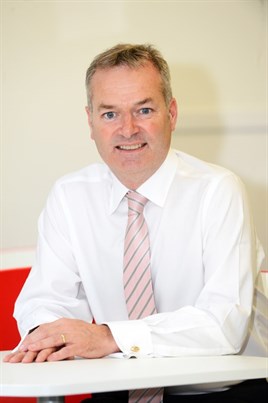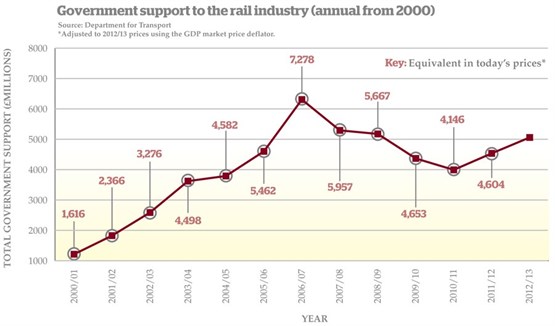It’s certainly true that since the formation of RSG, the cacophony of supplier anger about RDG has receded. But I have to ask the obvious question: will RSG and RDG merge? Evolve into a single organisation?
“There is certainly no plan for that at this point in time,” says Griffiths. “What we want to do is work together for the benefit of the industry and all its stakeholders.”
We move on. I ask how a group of competing TOC owners, all with clear legal and corporate responsibilities to put their shareholders’ interests first at all times, can collaborate fully or effectively in the way we all want to see. Given that we’ve established that membership does not comprehensively represent the industry as a whole, can we be sure that corporate rivalries and individual responsibilities will not hamstring real progress on matters that affect everyone - especially those denied membership?
I mention that the atmosphere around that famous table must have been thick with tension between Virgin and First, during the West Coast franchise debacle. Given what they were saying about each other in public, how could they collaborate effectively in private?
“You’re right,” says Griffiths. “There will be times when different groups will have their own commercial interests to think about, protect, look after - whatever way you want to phrase it. But generally, in my experience - and I have been there largely from the very beginning - I think I’ve been at every meeting, and what’s discussed behind closed doors stays behind closed doors.
“But I think I can be very honest and say that largely we’ve had only positive discussions. We recognise that sometimes we have to deal with our own commercial interests, but when we are here we are sitting trying to represent the rail industry and do the right thing for the industry as a whole.
“Even out of the awful West Coast procurement came some real positives, and I would never have thought that was possible! I was tasked to investigate how the industry could respond to the challenge of the Brown review. We wanted a collective response through RDG and, as you say, at that time things were sore.
“FirstGroup and Virgin both felt very aggrieved about the franchising process - but RDG was at the forefront of an industry submission to Richard Brown’s review, and I was actually very proud of that. For me that was one of the first big tests of our ability to put our personal positions to one side, and come together and say ‘if we don’t fix this we might not have an industry, because we really can’t afford not to have a procurement process that is not fit for purpose’.
“Everybody came together and participated in it, and I think the industry takes great credit for that.”
High Speed 2
I ask how his claims about RDG’s industry leadership dovetail with its silence over a very long period about HS2, which will be Europe’s biggest infrastructure project? Long before RDG’s birth, ATOC was extremely lukewarm (if not indifferent) about HS2, which it clearly regarded more as a competitor for government funds.
“We will look to try and address that. I hope you will have seen a stronger approach through a number of different publications, articles and reviews. When it’s appropriate for the RDG to speak we WILL speak. We will have a voice on these issues, and I think that’s important.”
Although there’s no mention of RDG on the wall in ATOC’s reception, there’s no mistaking the bigger presence and increased momentum to its activities since the ATOC merger. Does RDG now have the critical mass needed to make a difference (alongside a solid PR policy), and the courage to pursue it?
“It has helped that we now have Michael and his team to help put a day-to-day support structure in place,” he agrees.
“There was no doubt that was a challenge over the previous 18 months. I have a lot of time for Graham Smith, who was a kind of one-man band supporting Tim, but that was never sustainable. Now we have the full effect of the ATOC resource behind us. That makes a huge difference in our ability to really be on top of issues.”
Is it correct that RDG made an attempt to merge with or even take over RSSB, in its search for critical mass and credibility?
“Whether you call them takeovers… mergers… for me there is still a debate to be had, and it is still ongoing about the whole industry structure. The one thing I said at the very beginning here on RDG is ‘if all we do is form another talking shop, and we don’t start to streamline the structures and decision-making, then we have failed’.
“If we were to put the industry structure on that whiteboard behind you, with all the different overlaps, I think we’d agree that you would not run a normal company or corporate structure or any other body like that.













